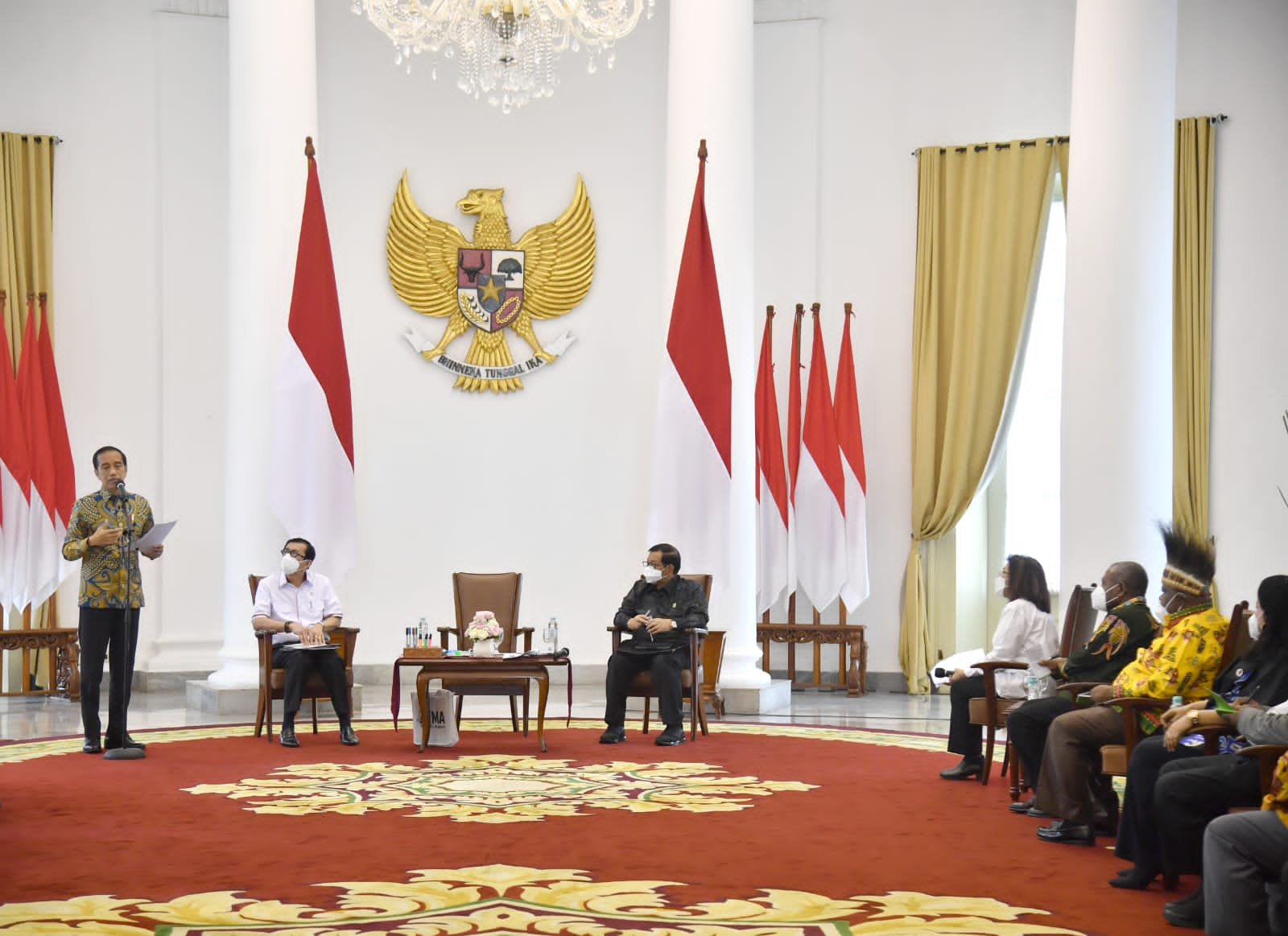President Jokowi Talks on Papua, West Papua’s New Autonomy Regions

President Jokowi accompanies by Cabinet Secretary Pramono Anung and Minister of Law and Human Rights Yasonna Laoly meets the Papuan People’s Assembly (MRP) and the West Papuan People’s Assembly at the Bogor Presidential Palace, Friday (05/20). (Photo: BPMI/Rusman)
President Joko “Jokowi” Widodo had a meeting with the Papuan People’s Assembly (MRP) and the West Papuan People’s Assembly at the Bogor Presidential Palace, Friday (05/20).
Regent of Jayapura Mathius Awoitauw who represented the group said that his party appreciated the meeting with President Jokowi to discuss the issue of the new autonomous regions (DOB) in Papua.
“First of all, we would like to express our appreciation and gratitude to the President for discussing issue on the implementation of Law number 2 of 2021 on Special Autonomy in Papua province and it includes a new autonomous region namely South Papua, Central Highlands Papua, and Central Papua,” he said.
Mathius explained that the plan to establish a new autonomous region is a genuine aspiration of Papuans who have been fighting for this issue since long time ago. South Papua, for example, has fought for it for twenty years.
“So, this is not a sudden request. These are pure aspirations from South Papua, Tabi, Saereri, as well as La Pago and Mee Pago,” he added.
Furthermore, Mathius explained that the aspirations were based on customary territories, not based on demonstrations. According to him, the Papuan people hope that the new autonomous regions can be their way to accelerate prosperity in Papua and West Papua provinces.
According to Mathius, the Special Autonomy Law binds all communities throughout the land of Papua so that there is legal certainty to manage the spaces owned by indigenous peoples based on the seven customary territories in Papua.
According to him, the Special Autonomy Law binds all communities throughout the land of Papua so that there will be legal certainty to manage the spaces owned by indigenous people based on the seven customary territories in Papua.
“We need certainty. Therefore, we need the Special Autonomy Law. Our problem is the implementation, it must be in line with the central government, provincial governments, and regional governments. That’s where the real problem lies,” he said.
The Special Autonomy Law will also provide legal certainty for mapping rights to customary areas. With this legal certainty, it is hoped that the land problem in Papua will be resolved.
“The Papuan conflict is actually a land issue, therefore we need certainty here through the Special Autonomy Law to resolve problems in Papua,” he added.
In addition, Mathius continued, the new autonomous region will also bring public services closer to the community because the main challenge is geographical conditions.
“No matter how much the funds allocated in the Special Autonomy, if the geography is as difficult as it is now, it will still experience extraordinary obstacles. Therefore, the new autonomous region is a solution to accelerate the welfare of Papua and West Papua,” he explained. (BPMI/AIT) (EST/LW)








